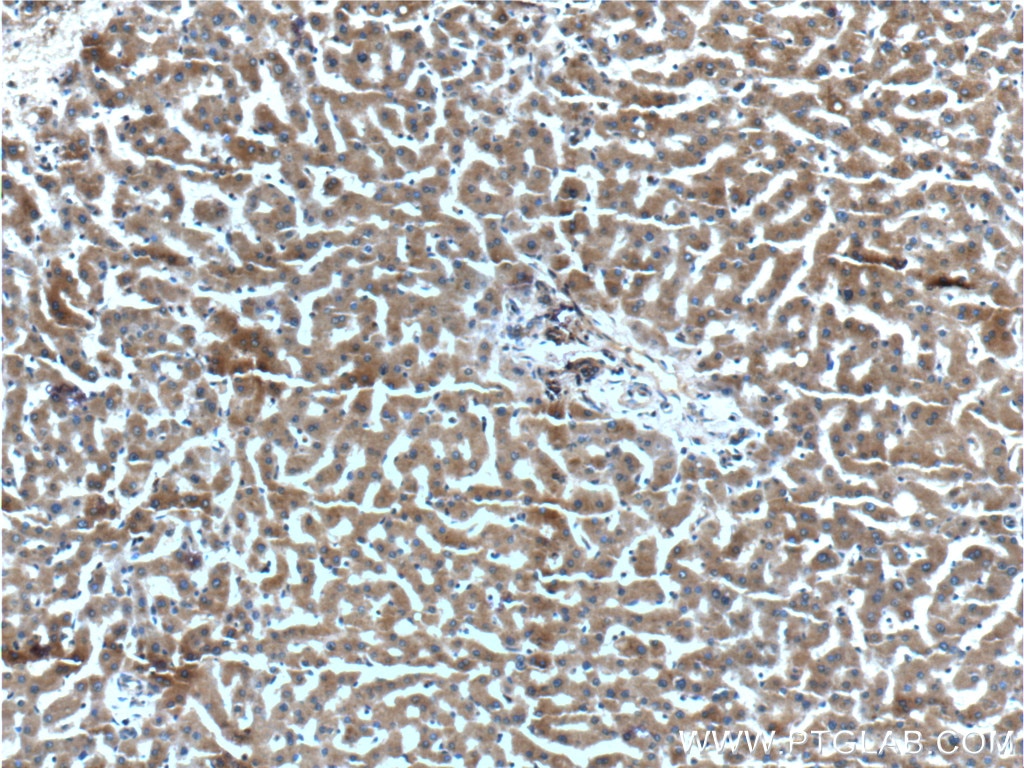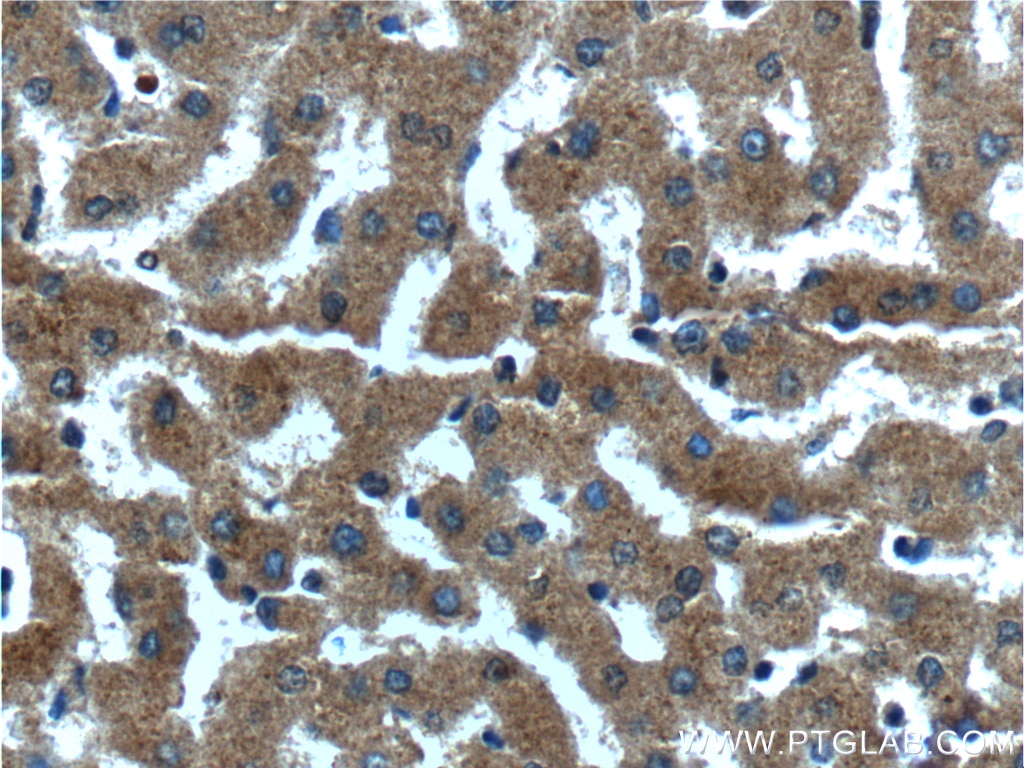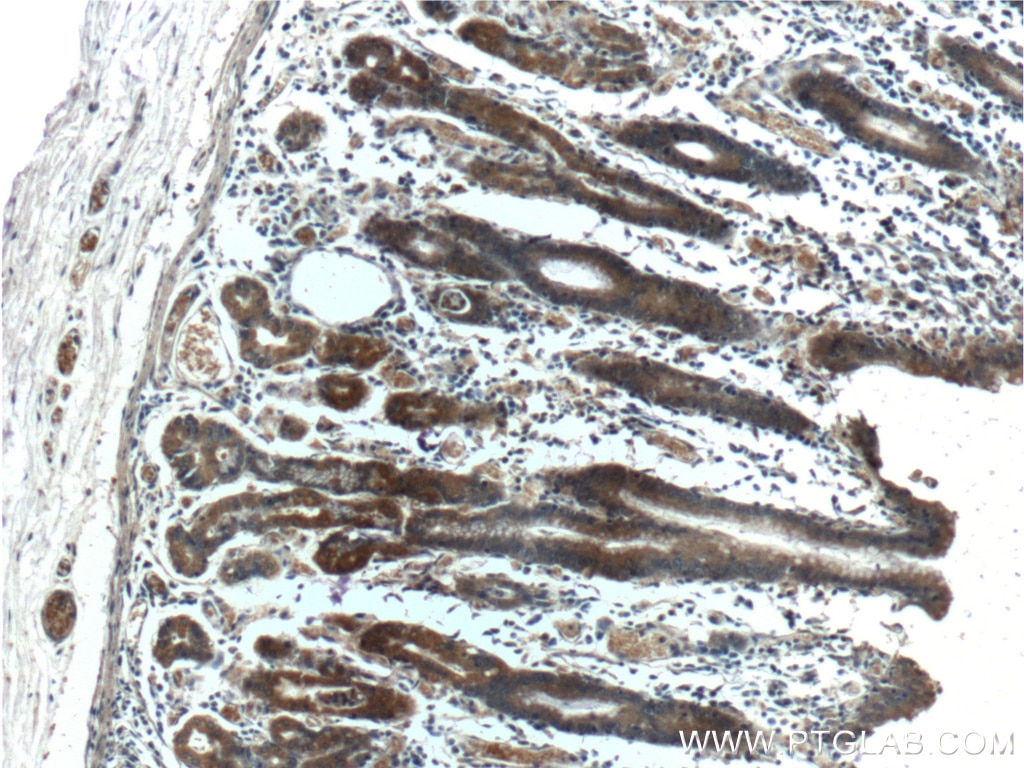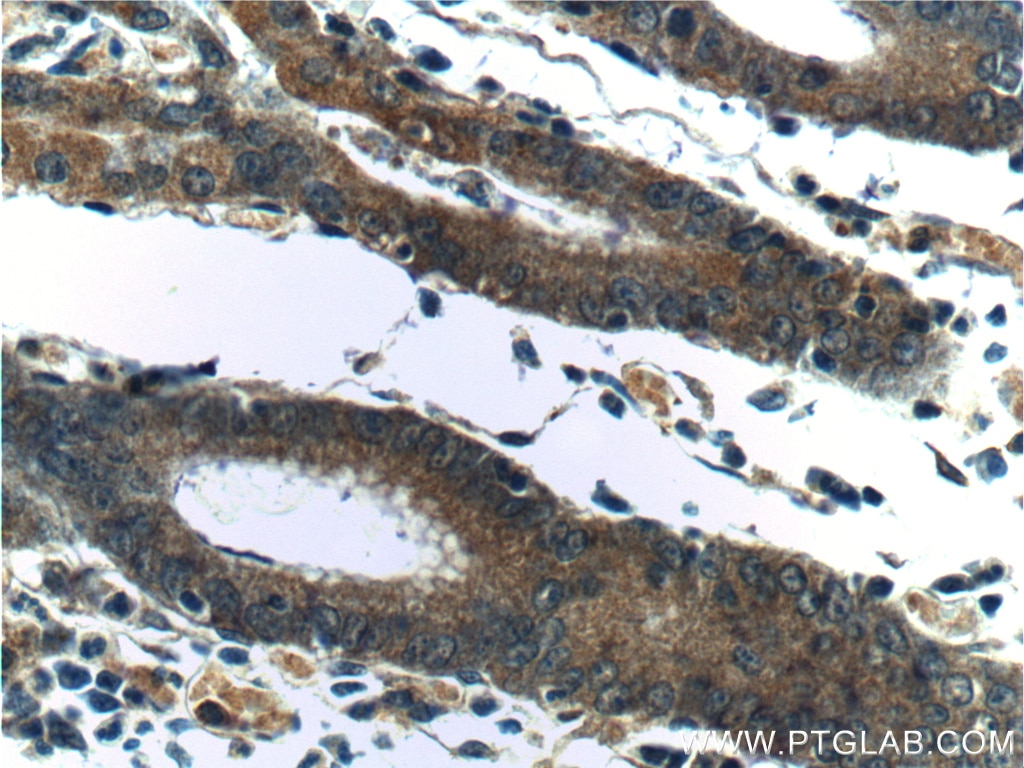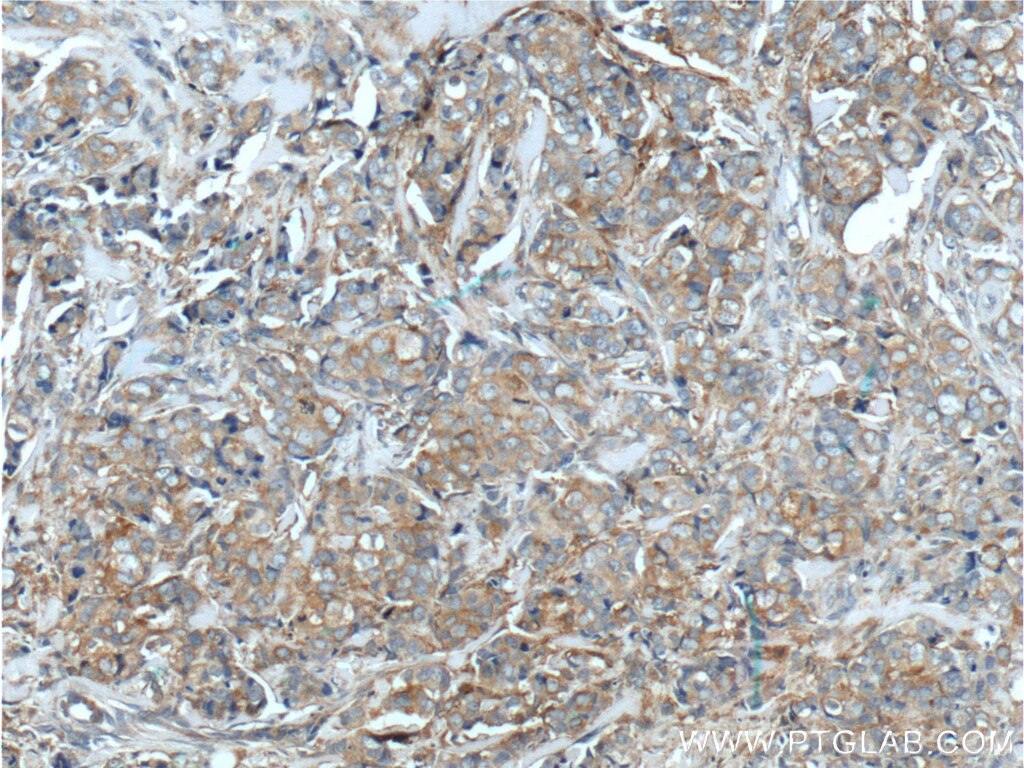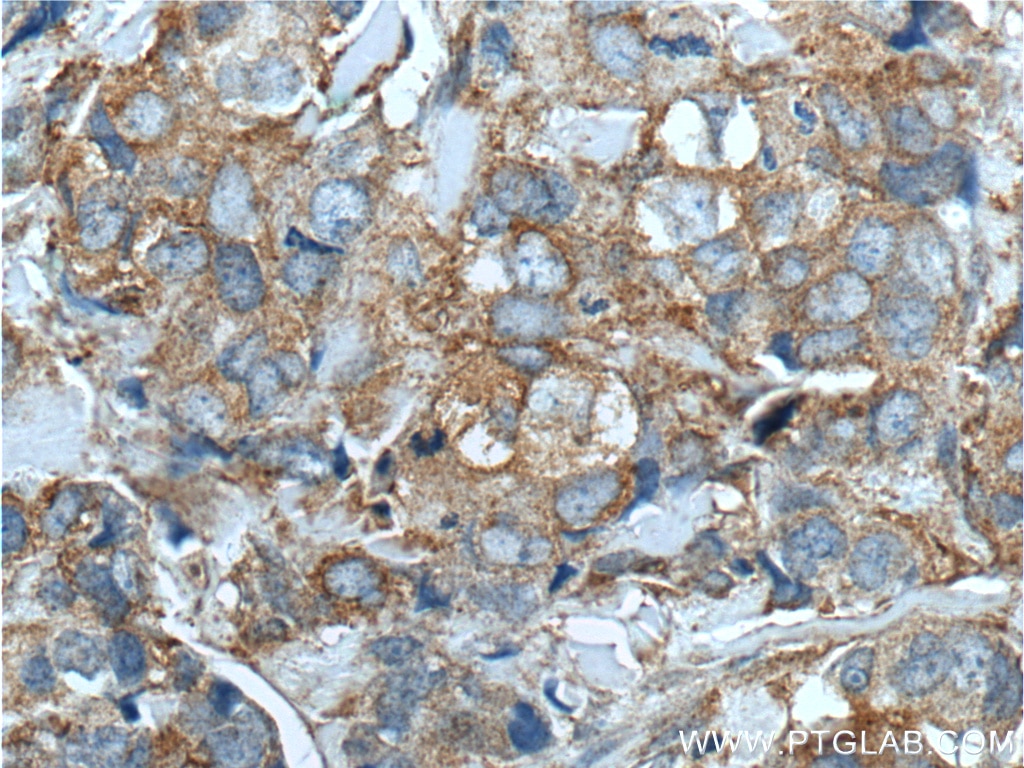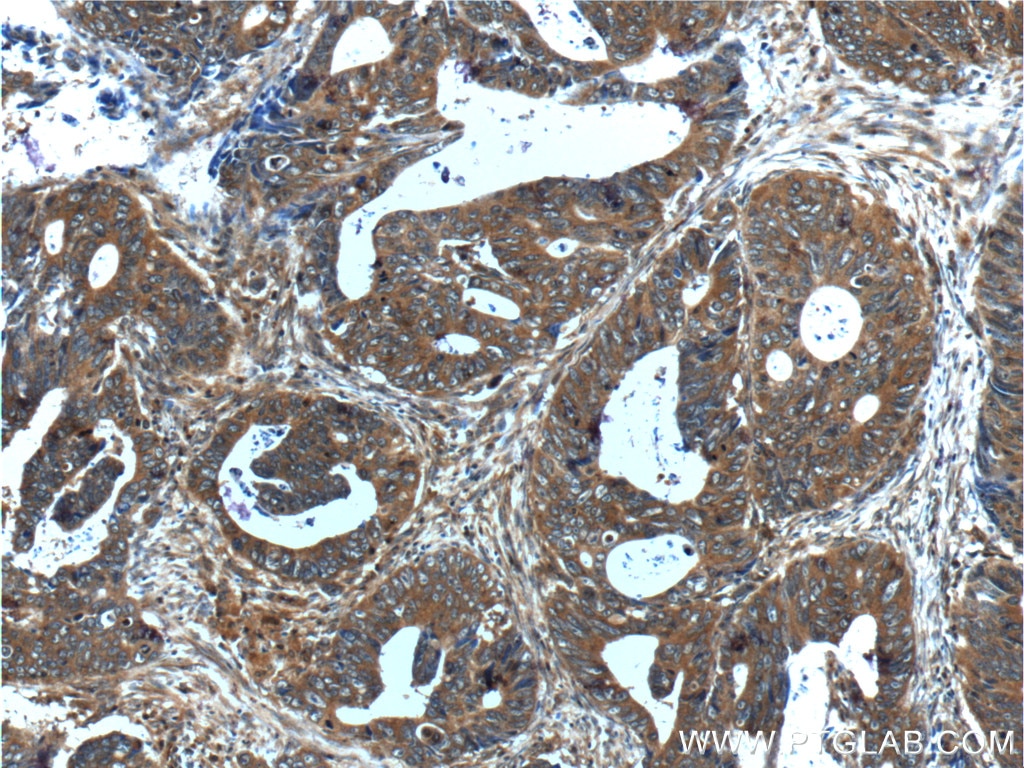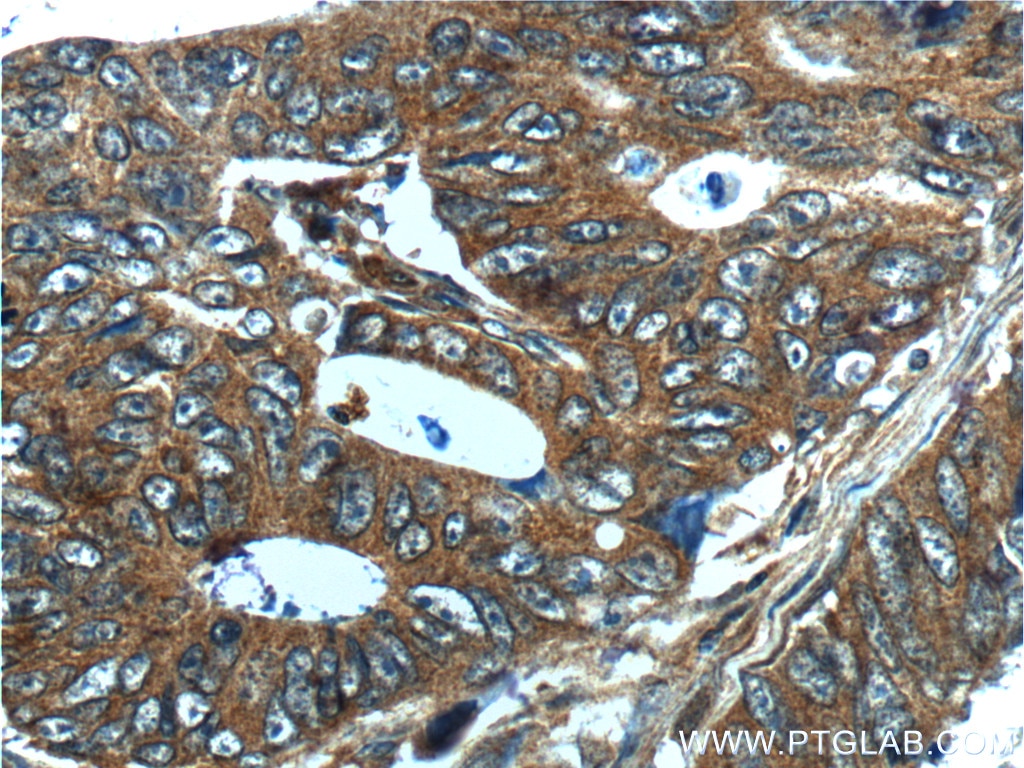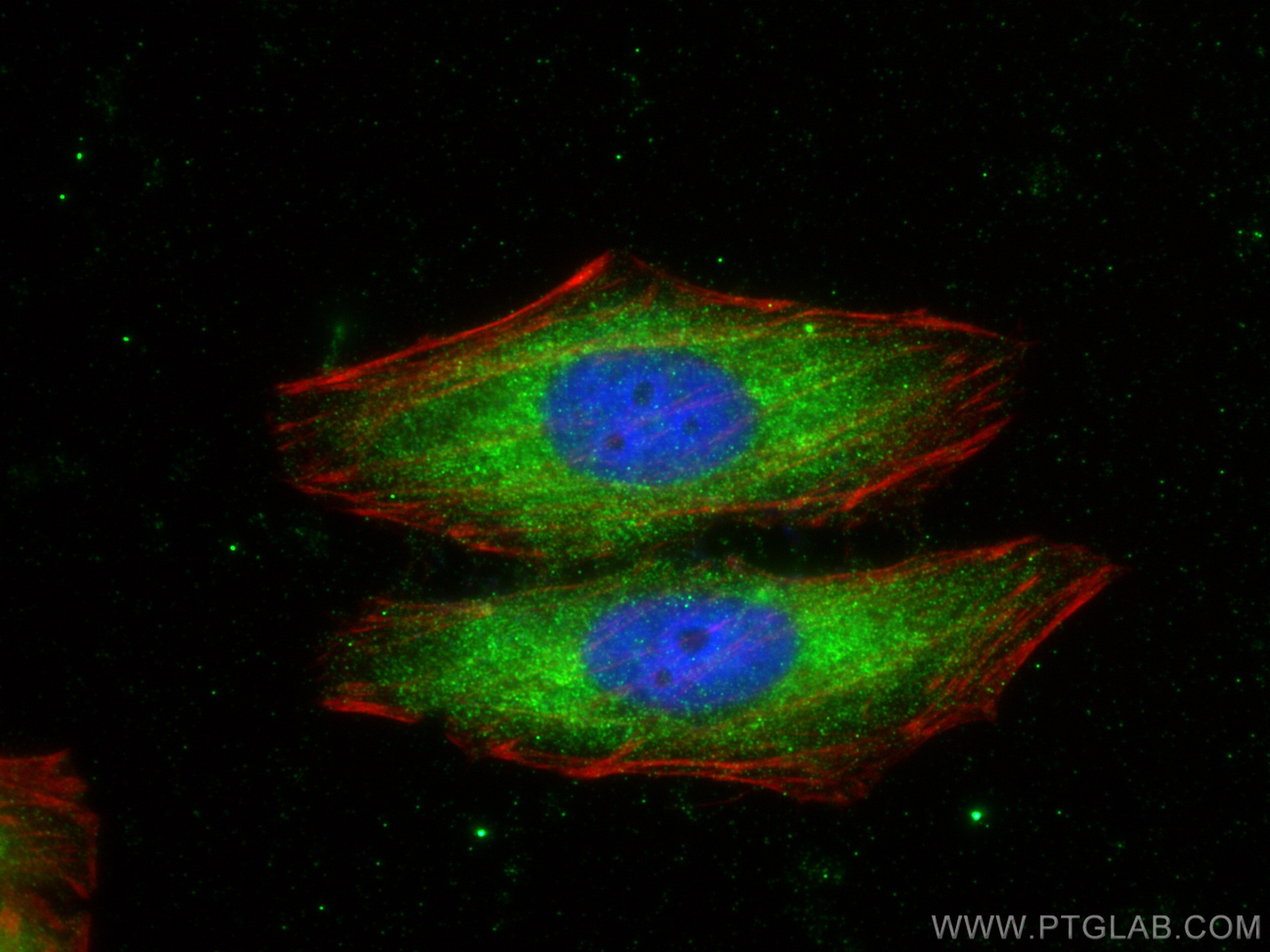Validation Data Gallery
Tested Applications
| Positive IHC detected in | human liver tissue, human breast cancer tissue, human colon cancer tissue, human stomach tissue Note: suggested antigen retrieval with TE buffer pH 9.0; (*) Alternatively, antigen retrieval may be performed with citrate buffer pH 6.0 |
| Positive IF/ICC detected in | HepG2 cells |
Recommended dilution
| Application | Dilution |
|---|---|
| Immunohistochemistry (IHC) | IHC : 1:50-1:500 |
| Immunofluorescence (IF)/ICC | IF/ICC : 1:200-1:800 |
| It is recommended that this reagent should be titrated in each testing system to obtain optimal results. | |
| Sample-dependent, Check data in validation data gallery. | |
Published Applications
| KD/KO | See 2 publications below |
| IHC | See 5 publications below |
| IF | See 4 publications below |
Product Information
10468-1-AP targets CXCL14 in IHC, IF/ICC, ELISA applications and shows reactivity with human samples.
| Tested Reactivity | human |
| Cited Reactivity | human, mouse |
| Host / Isotype | Rabbit / IgG |
| Class | Polyclonal |
| Type | Antibody |
| Immunogen |
CatNo: Ag0747 Product name: Recombinant human CXCL14 protein Source: e coli.-derived, PGEX-4T Tag: GST Domain: 1-111 aa of BC003513 Sequence: MSLLPRRAPPVSMRLLAAALLLLLLALYTARVDGSKCKCSRKGPKIRYSDVKKLEMKPKYPHCEEKMVIITTKSVSRYRGQEHCLHPKLQSTKRFIKWYNAWNEKRRVYEE 相同性解析による交差性が予測される生物種 |
| Full Name | chemokine (C-X-C motif) ligand 14 |
| Calculated molecular weight | 13 kDa |
| Observed molecular weight | 13 kDa |
| GenBank accession number | BC003513 |
| Gene Symbol | CXCL14 |
| Gene ID (NCBI) | 9547 |
| RRID | AB_2086070 |
| Conjugate | Unconjugated |
| Form | |
| Form | Liquid |
| Purification Method | Antigen affinity purification |
| UNIPROT ID | O95715 |
| Storage Buffer | PBS with 0.02% sodium azide and 50% glycerol{{ptg:BufferTemp}}7.3 |
| Storage Conditions | Store at -20°C. Stable for one year after shipment. Aliquoting is unnecessary for -20oC storage. |
Background Information
CXCL 14 (C-X-C motif chemokine 14) is a small inducible cytokine, and may be a potent chemoattractant for neutrophils. CXCL14 possesses a destruction box (D-box) domain which acts as a recognition signal for degradation via the ubiquitin-proteasome pathway. CXCL14 is widely expressed in normal tissues including heart, brain, placenta, lung, liver, skeletal muscle, kidney and pancreas without inflammatory stimuli. It is dispensable for dendritic cell function and localization within peripheral tissues. In localized prostate cancer, CXCL14 mRNA was significantly upregulated and positively correlated with Gleason score.
Protocols
| Product Specific Protocols | |
|---|---|
| IF protocol for CXCL14 antibody 10468-1-AP | Download protocol |
| IHC protocol for CXCL14 antibody 10468-1-AP | Download protocol |
| Standard Protocols | |
|---|---|
| Click here to view our Standard Protocols |
Publications
| Species | Application | Title |
|---|---|---|
Transl Res Novel role of CXCL14 in modulating STAR expression in luteinized granulosa cells: implication for progesterone synthesis in PCOS patients. | ||
Dis Model Mech Loss of Ranbp2 in motor neurons causes the disruption of nucleocytoplasmic and chemokine signaling and proteostasis of hnRNPH3 and Mmp28, and the development of amyotrophic lateral sclerosis (ALS)-like syndromes. | ||
Front Pharmacol Aberrant ROS Mediate Cell Cycle and Motility in Colorectal Cancer Cells Through an Oncogenic CXCL14 Signaling Pathway.
| ||
Int Immunopharmacol Comprehensive analysis of the expression and prognostic value of CXC chemokines in colorectal cancer. | ||
Thyroid Iodide-induced chemokines and genes related to immunological function in cultured human thyroid follicles in the presence of thyrotropin. | ||
J Transl Med Chemokine CXCL14 is associated with prognosis in patients with colorectal carcinoma after curative resection.
|

